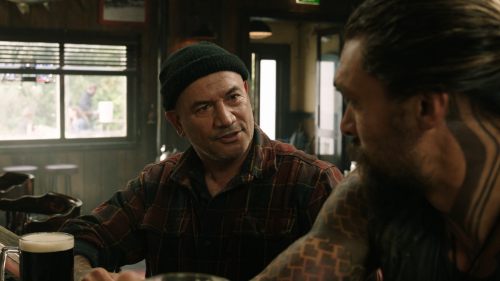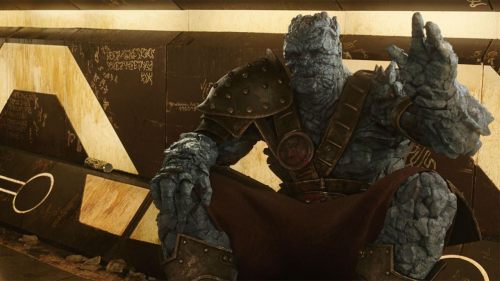GOODBYE PORK PIE: A Classic Kiwi Car Comedy
Everything’s a bit shit, but we put up with it.
That’s a generic statement that works most places, but it’s also a central part of New Zealand culture. The signs on our shops are faded and hand-painted and a bit shit. Our houses are leaky and poorly insulated and a bit shit. Our cars are old and temperamental and a bit shit. And for some reason, there’s a goodly part of the population that makes all this a point of national pride. We laugh and shrug and say “she’ll be right, mate”. We put up with it.
Goodbye Pork Pie is New Zealand’s answer to Easy Rider, fed through that strainer of self-deprecation.
A significant part of New Zealand cinema history, Goodbye Pork Pie was the first seriously (read: financially) successful movie made in the country. Directed by Geoff Murphy (The Quiet Earth; Freejack; my favourite NZ film, Utu), the seminal road comedy follows a pair of desperados as they drive a Mini along the length of the country, from Auckland in the north to Invercargill in the south, weaving a journey through New Zealand physically and culturally.
Or rather, counter-culturally. New Zealand’s cinematic output in the the early ‘80s (and through the ‘90s and even today to some extent) was defined by a grim outlook on life. Sam Neill’s documentary Cinema of Unease drills deep into this, but all you need to know is that we make a lot of existentially terrified movies. Goodbye Pork Pie demonstrates that even our comedy is full of quiet, depressing admissions that our lives are, indeed, a bit shit. Right from the top of the movie, we meet our middle-aged straight-man/protagonist John (Tony Barry), drinking alone after his girlfriend dumps him. When he runs into the wild nineteen-year-old Gerry Austin (Kelly Johnson) driving a stolen rental Mini 1000, he embarks upon a quest to return to his girlfriend in distant Invercargill. There’s a desperation to that that’s reflected in the whole rest of the film.
Also reflected in the film is the reckless abandon of a culture that had yet to mature (or, some might say, become jaded). Thirty-four years on, its humour is incredibly dated. Gerry Austin, the film’s police-baiting wild card, is set up as an antihero - he steals a wealthy person’s wallet and identity because he sees that as fair, given his circumstances - and through much of the movie, we’re behind this crazy guy. He flirts with danger, steals shit, runs from the police, hides in boxcars - and does it all with a sense of humour. But he’s also a bit of an asshole, especially where it comes to women - the movie has several female characters, but almost all of them are called “bitch” at least once. Women in Goodbye Pork Pie are cold, easy, or sexually curious, and all of them succumb to Gerry’s charms, despite his assholery. He seems to collect casual sexual conquests like he collects flags to stick on his car. Hell, virtually his first line is “I hope your dog dies, you snotty bitch!”. That’s the tone, and sadly that casual sexism is reflective of New Zealand culture to a degree. It still is.
More famous even (in New Zealand) than its characters are Goodbye Pork Pie’s car. The Austin Mini 1000 may be more famous elsewhere as Mr. Bean’s car, but in New Zealand, apart from still being seen on roads, it’s the car from Goodbye Pork Pie. The Mini is the movie. Its arc - aspirational, redemptive, going out in a blaze of glory - is as important as any of the human characters’. It’s also representative of New Zealand as a country. It’s little, it’s uncomfortable at times, but it overachieves, and for whatever reason, its inhabitants love it as much for its faults as for its merits.
As the film goes on, the car gets more and more run down. The self-described Blondini Gang of John and Gerry strip the car for parts and cash, including in one crazy episode with venerated Kiwi actor John Bach looking like a skinny Bill Bailey as the unhinged “Snout”. By the end, it has no doors, no hood, no seats, and no battery - it’s reduced to the minimum possible amount of car required to operate as a car. The road trip turns into a grim march to the finish as the pair desperately jettison weight from the increasingly husk-like car, and eventually, once Gerry meets a tragic fate at the hands of the police, it’s up to John to push to the finish. As the Mini finally rolls, in flames, to its final explosive resting place, it’s earned its retirement. There’s a sense of “success at any cost” to these final minutes. Even when John is arrested, naked, by the police, he’s okay with it - he got his girlfriend back, and that’s all that mattered. He’s won the cultural battle.
Goodbye Pork Pie’s reputation precedes it today in a way that doesn’t do the film many favours. It’s held up as a classic of Kiwi comedy, but it’s not actually hugely funny for the most part - it gets more out of its freewheeling energy and countercultural edge than jokes or traditionally comedic situations. But it did a lot to set up a film industry, so for that I owe it. It’s everything New Zealand was, and sort of still is. Whether or not that’s a good thing is down to the viewer.



